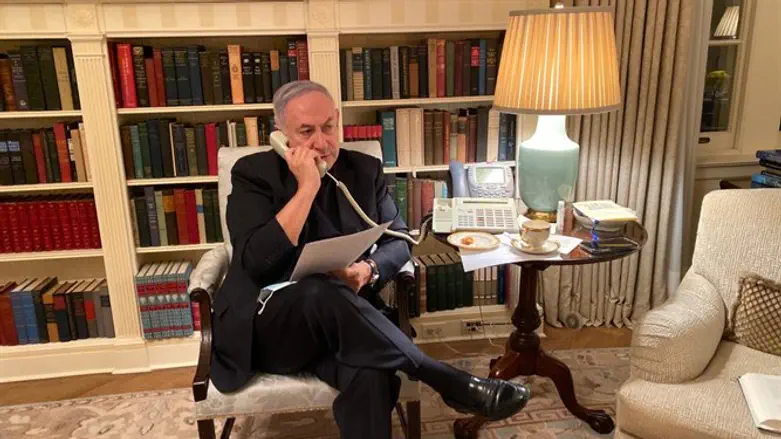
After Prime Minister Binyamin Netanyahu took off for Washington, it became clear that he was not authorized to sign the peace agreement with the United Arab Emirates and that that power rested only with Foreign Minister Gabi Ashkenazi, who remained in Israel.
Ashkenazi gave a power of attorney to Netanyahu after seeing the final version of the agreement and it was clarified to him that the deal would be ratified and enter into force only after it received the government's approval.
Earlier today, the Minister of Foreign Affairs of the United Arab Emirates, Anwar Gargash, said that the agreement to be signed today with Israel would include a reference to the two-state solution as part of a mention of previous agreements which have been signed. The agreement will emphasize basic positions and will address additional bilateral agreements to be signed between Israel and the United Arab Emirates.
Gargash told Walla correspondent Barak Ravid that following the agreements with Israel for the United Arab Emirates and Bahrain "there will now be leverage on Israel that will allow us to help the Palestinians and make it clear to Israel that it needs to compromise and pursue a more sensible policy vis a vis the Palestinians."
"The commitment we received from Israel not to annex is very clear to me. The presence of the United States as a mediator ensures that the freeze on annexation is real and long-term. The Palestinians need to take advantage of the situation that has arisen and return to talks. A policy of an empty chair and a lack of connections will not bring results," he said.
The UAE minister added: "We have broken the psychological barrier. It was the hardest thing. And now it is much more possible to move forward. There is still a lot of work to be done, but I am very optimistic about the region and our relations with Israel. It will be a warm peace."
"Such agreements need time to realize them to their full potential, but we think this is the way forward for the region. We want peace as between any two countries - trade and cultural ties. This is an opportunity for Israel to show that it can make a warm peace with Arab countries in the region," said Gargash.
